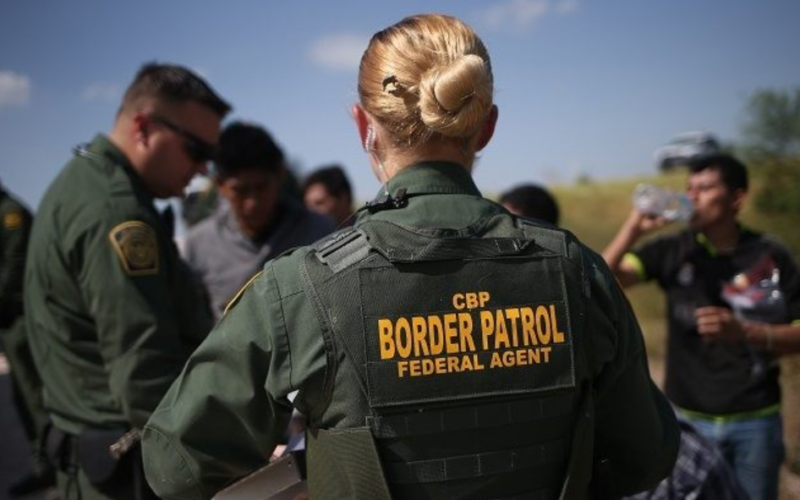In a bold challenge to federal authority over immigration, the Texas House of Representatives voted to establish a state-level criminal offense for entering the United States from Mexico between official ports of entry. This move permits local police agencies to arrest and detain unauthorized migrants or instruct them to return to Mexico. The bill also grants significant funding—$1.5 billion—for the construction of Texas-owned barriers near the border.
The legislation was proposed following a call from Texas Governor Greg Abbott, signaling an escalation of Operation Lone Star, his multibillion-dollar border security program. This new power for local law enforcement to arrest migrants is now on its way to the Senate, having already received approval for its own version, and it is expected to land on Governor Abbott’s desk for final approval.
The bill, presented by Representative David Spiller, a Republican from Fort Worth, was defended as a “humane, logical, and efficient approach” that upholds the rule of law. However, the proposal faced fierce opposition from Democrats, who raised concerns that it could inadvertently target Hispanic Texans, particularly the fear of an enforcement regime that has the potential to result in discrimination.
In a marathon session filled with intense debates and motions that extended throughout the night and into the next morning, the passions of legislators flared. Latino Representative Armando Walle, a Democrat from Houston, emotionally expressed that his community was under attack. He stated that the bill deeply hurt them personally.
For over two years, Governor Abbott and Texas Republican lawmakers have been pushing the boundaries of state authority to create aggressive law enforcement policies in response to the rising number of migrants crossing into the state from Mexico. However, establishing a criminal offense under state law that authorizes the arrest of migrants, even those seeking asylum, delves into the realm of immigration enforcement typically reserved for the federal government.
This legislative action is likely to trigger a significant legal battle over immigration, with the potential to revisit the 2012 Supreme Court case, originally from Arizona, which was decided in favor of the federal government’s primary role in establishing immigration policy.
Texas state police have already discussed the implementation of this law, explaining how they would detain migrants caught crossing the Rio Grande and direct them to cross back into Mexico. Some legislators voiced concerns that the law could result in the separation of children from their parents, as occurred during the Trump administration’s strict enforcement of federal laws against unauthorized entry. However, state troopers have indicated they would not conduct such arrests.
Constitutional law experts highlighted potential conflicts between the legislation and federal law and policy, including the challenge of ordering individuals to go to Mexico. The legislation does not provide exceptions for those arriving between ports of entry who intend to make asylum claims, an option that is enshrined in federal law.
The interaction between Texas law enforcement and the U.S. Border Patrol will also be significantly impacted by this law, as it’s unclear how it will affect the existing coordination. Many migrants immediately turn themselves in to federal agents to make asylum claims, a process that involves state officers alerting U.S. agents to hand them over for federal processing.
The legislation’s passage has escalated tensions in the ongoing struggle between state and federal authorities. It is expected to increase hostilities and conflicts over immigration enforcement at the Texas border.
Under the legislation, unauthorized migrants believed to have entered the country could be arrested by local or state police, even if they are hundreds of miles from the border. This significant expansion of arrest authority raises concerns about the potential overextension of local law enforcement agencies across the state and the impact on communities seeking cooperation with law enforcement. Arrests of migrants have been ongoing since 2021 under Operation Lone Star, with many facing misdemeanor trespassing charges, some subsequently being deported, and others spending months in jail after being arrested on trespassing charges.








